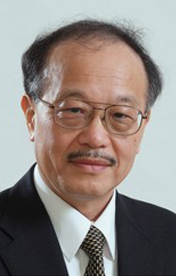Lehigh University
Office or Center Name Here
Masayoshi Nakashima
Kyoto University, Disaster Prevention Research Institute, Kyoto, Japan
E-Defense, National Research Institute for Earth Science and Disaster Prevention, Hyogo, Japan
Safeguarding Quality of Life: The Role of Large-Scale Testing
click here to view video
Friday, September 23rd, 2011 - 4:10 pm
Sinclair Lab Auditorium
Masayoshi Nakashima, Kyoto University, Disaster Prevention Research Institute, Kyoto, Japan: Masayoshi Nakashima, professor at the Disaster Prevention Research Institute, Kyoto University, graduated from Kyoto University and earned his doctoral degree from Lehigh University. He worked for the Building Research Institute of the Japanese Ministry of Construction and Kobe University before joining Kyoto University in 1992. Since 2004, Nakashima has also served as Director of E-Defense, National Research Institute for Earth Science and Disaster Prevention (NIED). E-Defense is a research center that operates the world’s largest shaking table.Nakashima’s fields of research include inelastic, stability, and collapse behavior of steel members and frames, seismic analysis and design of steel building structures, experimental techniques for simulating the earthquake responses of large structural systems, and seismic design of base-isolated buildings. Nakashima has received various national research awards, including Best Paper Prize of the Architectural Institute of Japan (AIJ) and the Moisseiff Award of ASCE. He is Editor of the International Journal of Earthquake Engineering and Structural Dynamics, the official journal of the International Association for Earthquake Engineering. Nakashima was Vice-President of AIJ, a learned society of about 36,000 members with expertise in all areas associated with buildings and inhabitants, including architecture, urban planning, building engineering, and building physics. Currently he serves as Vice-President of the Japan Association for Earthquake Engineering (JAEE) and Chair of the AIJ Structures Technical Committee. In the past, Nakashima chaired the Review Panel of the Architecture and Building Engineering Program of the Japan Accreditation Board for Engineering Education (JABEE, equivalent to U.S. ABET).
Safeguarding quality of life: the role of large-scale testing in earthquake engineering: A traditional attitude of earthquake engineering: “learning from actual earthquake damages”, is no longer acceptable as the resilience of society is naturally lessened with increasing diversity and complexity of the society. A practical alternative to this old attitude is to “learn from quasi-actual earthquake damages”, and one tool to this end is E-Defense, the largest shaking table in the world, developed in Japan after the 1995 Kobe earthquake. Since its inauguration in 2005, E-Defense has conducted forty some large-scale shaking table tests. This lecture introduces notable tests that had explored a variety of problems related to life-safety and quality-of-life during and after large earthquakes.
The Fazlur R. Khan Distinguished Lecture Series has been initiated and organized by Dan M. Frangopol, the first holder of Lehigh's Fazlur Rahman Khan Endowed Chair of Structural Engineering and Architecture.
